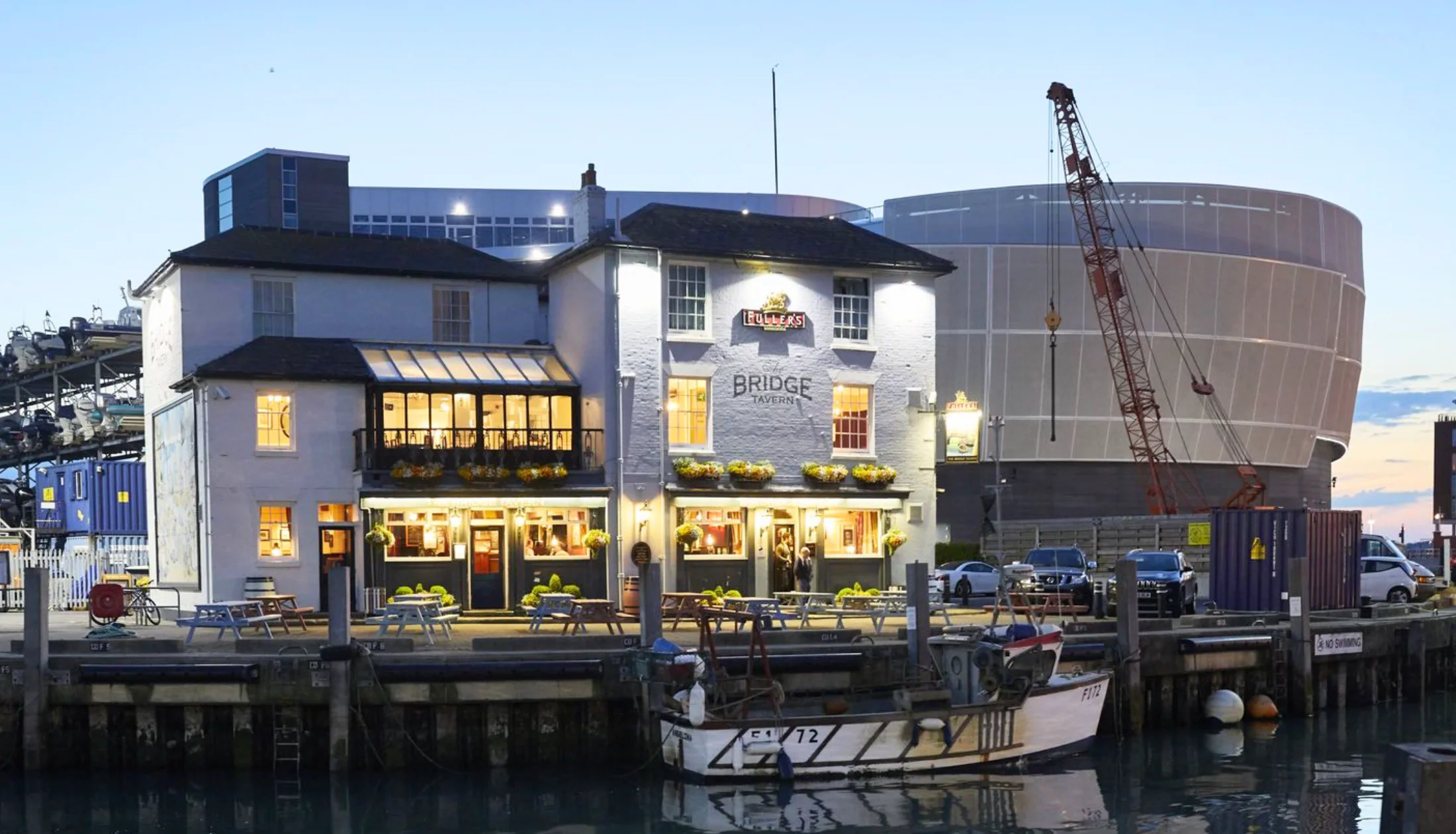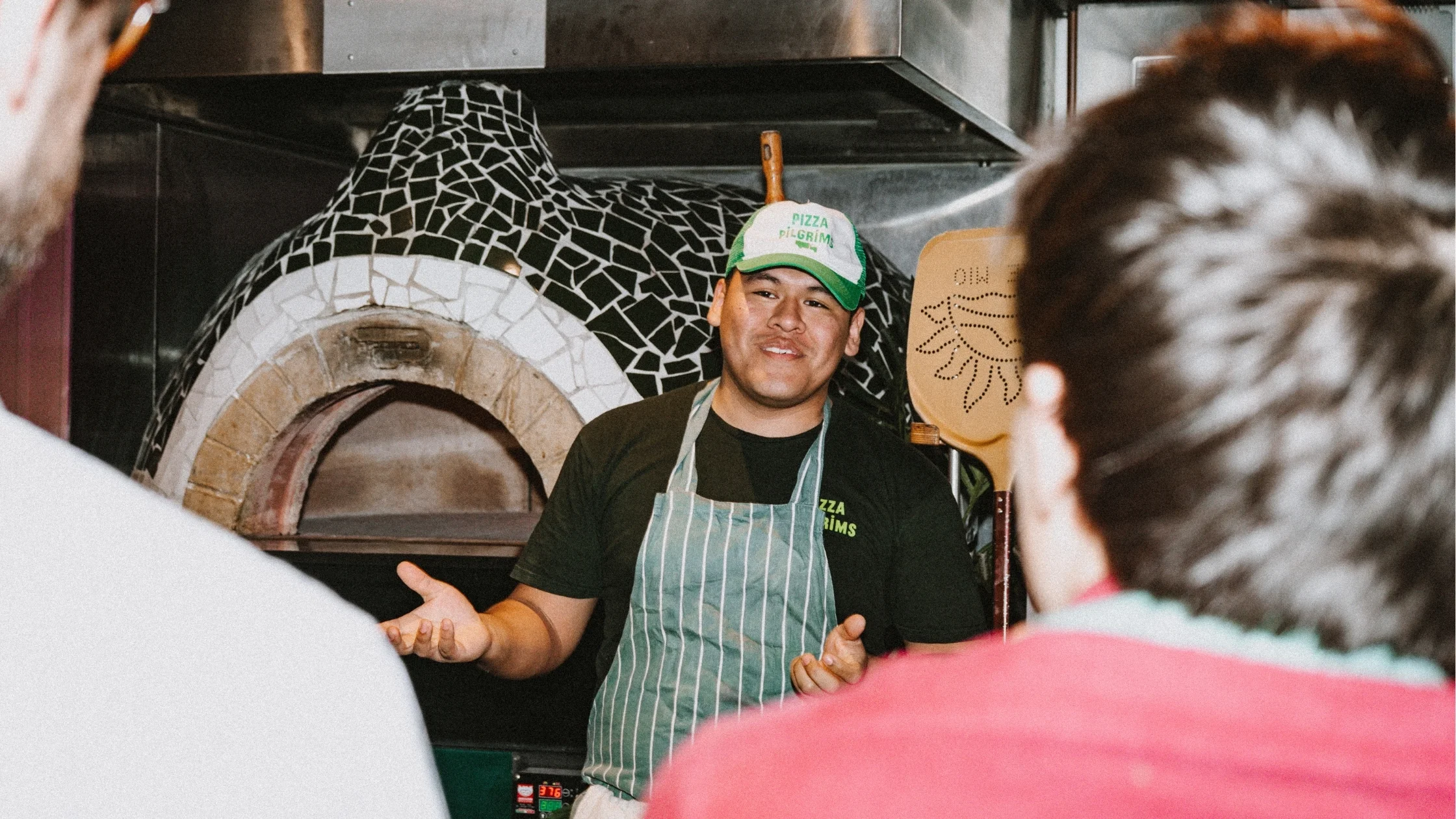Restaurant team training that sticks: How to turn systems into standout service
Every restaurant wants a team that delivers unforgettable service – the kind that guests rave about and come back for in the future.
It starts behind the scenes.
When schedules are clear, prep is smooth, and everyone knows what’s happening next, service feels effortless. When they’re not, even the best-trained teams struggle to keep up.
That’s why the best operators build systems that help training stick, giving teams the clarity, tools, and visibility to perform at their best shift-after-shift.
In this article, we explore how connected systems turn everyday training into standout service – and how you can do the same with Nory.
Key takeaways
- Great service starts behind the scenes, where connected systems keep operations running smoothly.
- When teams understand their tech and best practices, training turns into habit.
- Real-time feedback helps teams make fast improvements and deliver better service every shift.
- Empowerment, not micromanagement, turns training into ownership and service into a standout experience.
- Nory helps operators connect every part of their business, giving teams the clarity, tools, and insights to turn everyday training into exceptional service.
Why great service starts behind the scenes
Inconsistent service usually isn’t a people problem – it’s an operational one. You can run endless training sessions, but if your rota’s unpredictable, prep runs late, or you scatter communication across different channels, training simply won’t stick.
Guests remember service, but here’s the truth: great service doesn’t start with the morning briefing or a simple training manual, it depends on the systems behind it.
When operations run smoothly, training turns into habit. Teams know where they need to be, what needs doing, and how to adapt when things get busy.
And this is where service becomes seamless. Not because staff have memorised scripts, but because they have clarity and confidence.
The most consistent service doesn’t come from scripts – it comes from systems that empower people to perform at their best.
Businesses that have effective, unified systems deliver better service. Period. There are even reports that prove it.
Using technology to centralise restaurant operations and improve service is something we pioneer at Nory. Why? Because we’ve seen the benefits time and time again from operators using our tech.
When systems talk to each other – from labour scheduling to inventory management – teams stop firefighting and start thriving. Managers spend less time chasing data and more time leading their people. As a result, staff walk into every shift with clarity and confidence, ready to deliver their best.
What ‘training that sticks’ actually looks like
The best restaurant training blends empathy with operational readiness.
Even the most charming front-of-house team can’t deliver great customer service if they don’t have the visibility or context to do their jobs well. Great service relies on knowing why something’s delayed, when guests are waiting too long, or what to prioritise when things pile up.
The goal isn’t to create rehearsed teams – it’s to create confident, consistent ones.
So what does this actually look like in practice?
It looks like teams who have a clear understanding of how to use their restaurant tech and the best practices that keep operations running smoothly.
When staff know how to access key insights, read performance data, and act on it, they can deliver the best possible service to your guests.
Here are some of the insights customer-facing staff can access with Nory to improve their service:
- Live performance dashboards. See shift metrics like table turnover, labour efficiency, and sales in real time, helping staff make immediate adjustments to keep service running smoothly.
- Integrated scheduling and forecasting. Know who’s on shift, when, and where coverage gaps might appear, so teams can plan and prioritise tasks proactively.
- Insights from customer reviews. View guest feedback linked to operational factors like wait times or stock shortages, turning comments into on-the-floor learning opportunities.
- Stock and prep visibility. Check ingredient levels and prep status, so staff can manage expectations and prevent service delays.
- Automated daily briefs. Get summaries of key shift goals, special events, and operational priorities, giving staff the clarity to start every shift ready to deliver consistent service.
.webp)
With access to these insights, staff can make smarter decisions to deliver consistently brilliant service every shift.
From classroom to culture
Most training fails because it’s disconnected from reality. The best operators make training part of daily operations, reinforced through systems, coaching, and constant feedback loops.
Take Tasty African Food as an example. With over 20 sites, the company successfully rolled out Nory by focusing on thoughtful, people-first change management.
Rather than imposing new technology from the top down, they built understanding and excitement from the ground up. Head of IT and Business Analysis, Seun Oladimeji, laid the groundwork by:
- Delivering clear communication. Every new process came with clear, transparent messaging so staff understood not just what was changing, but why.
- Providing data visibility. Teams could see the results of their efforts – from reduced waste to faster workflows – which built trust and motivation.
- Implementing structured rollouts. Each location introduced changes in phases, allowing staff to learn, test, and adapt in real time without disruption.
The results? Higher team adoption, smoother transitions, and measurable operational gains – including a 75% reduction in food waste and 98.5% forecast accuracy.
We didn’t need to incentivise our team—making their day-to-day easier was enough. Tasks that used to take hours now take less than 30 minutes. That alone is a powerful motivator.
Seun Oladimeji, Head of IT and Business Analysis
With Nory, Tasty African Food built a culture of learning that strengthens with every shift. Their teams are now more confident, data-driven, and ready to adapt – proof that when training becomes part of the culture, transformation sticks.
Using the right technology also frees up time for operators to build a culture of continuous learning.
With Nory, Barge East brought everything together in one place – from scheduling to forecasting. The result was immediate: managers saved 4-5 hours every week.
Success for us is twofold: happy guests, and a business that runs profitably. Nory helps us do both.
Stuart Thomson (Tommo), co-founder of Barge East.
By cutting admin and centralising data, Nory gave managers the bandwidth to do what they do best – lead teams.
This shift has created a culture of continuous learning. Managers have more time to share insights, guide teams during service, and reinforce training in the flow of daily operations where it truly sticks.
Closing the feedback loop
Customer reviews are valuable, but only if they connect to your operational data.
Integrating online reviews into your operations helps you pinpoint areas of improvement in real-time, allowing staff to make fast changes to their service.
Say that customers leave reviews about slow service. With Nory, for example, managers get real-time insights into these reviews alongside key operational data. They can then see:
- What the issues are
- Which staff were on shift
- Where delays occurred
Teams can then adjust their performance mid-service, reallocating staff, speeding up prep, or managing guest expectations.
These real-time insights help you turn feedback into continuous improvement. As a result, staff can learn, adapt, and deliver better service every shift.
Integrating this feedback into your operational data also helps you pinpoint the cause of the issue. For example, staffing gaps, prep delays, or menu bottlenecks.
By linking this feedback directly to operations, managers can coach teams with precision and prevent the same issues from happening again.
The benefit is clear: instead of reactive, vague fixes, you get real-time insights that turn feedback into continuous improvement.
Want to find out more? See how Nory helps operations turn reviews into revenue.
Visibility that builds confidence
Training provides knowledge, there’s no debate around that. But confidence? That comes from visibility.
When teams can see what’s coming (busy periods, stock levels, rota plans), they can anticipate challenges instead of reacting to them. As a result, they work smarter and deliver better service.
Managers with access to live data can also lead more effectively. They can spot potential bottlenecks, adjust staffing on the fly and provide coaching in the moment rather than after the fact.
.webp)
Here’s some proof in action:
- Dr. Juice used Nory to reduce payroll admin by 90% and increase sales per labour hour by 43%, As a result, managers now have more time to focus on coaching and service leadership rather than paperwork.
- Hook & Ladder uses Nory’s real-time insights to align staff and spend every day. Managers can adjust labour in real time, maintain consistency across cafés, and deliver smoother guest flow during peak hours. The result? Better guest flow, higher table turnovers, and improved service consistency.
When teams can see the full picture, training stops being abstract. Staff know what to prioritise, managers know where to focus, and service is consistently better.
From training to ownership
Great operators don’t just train their staff, they empower them.
With connected systems and transparent data, staff naturally make smarter decisions. For example, front-of-house teams can adjust staffing or seating to meet guest demand and kitchen staff can prioritise prep based on live orders.
The results? A better dining experience.
But ownership doesn’t happen by accident – it needs the right leadership.
Managers play a key role in creating an environment where teams feel trusted to make decisions. When leaders focus on guidance instead of micromanagement, staff gain the confidence to take initiative and solve problems on the spot.
.webp)
Empowered teams are also more engaged, accountable, and consistent. By stepping back and letting systems provide clarity, managers give staff the space to do their jobs well – and that’s what leads to smoother service and happier guests.
Restaurant team training FAQs
Why is tech training important for restaurant staff?
Proper training ensures staff can use technology efficiently, avoid errors, and enhance guest experiences. With Nory, for example, when staff know how to use the system to predict demand, they can make sure the restaurant is prepared to deliver the best possible dining experience.
For example, managers can schedule the right number of team members, order the right amount of ingredients, and coordinate kitchen and front-of-house operations to deliver a smooth, seamless dining experience.
How is restaurant tech training delivered?
Training works best when it’s hands-on. With Nory, for example, staff can practice on real systems, watch short video tutorials, and receive guidance from a dedicated support team.
Our team is available to answer questions, troubleshoot issues, and provide ongoing check-ins to ensure staff are confident using the system.
And training isn’t a one-time event. We offer continuous support to help staff apply what they’ve learned, improve efficiency, and make the most of the technology to deliver better service and smoother operations.
Find out more about how Nory’s customer support team helps restaurants thrive.
How is training progress tracked and maintained?
Managers can use technology to see how well staff are using what they’ve learned. For example, tracking things like order accuracy and service speed to spot areas that need improvement.
By looking at these results, managers can give extra support when needed and make sure staff keep delivering great service.
Ready to build training that sticks? Take a look at Nory
Memorable service doesn’t happen by chance – it happens when empowered teams have the clarity to deliver consistency, every day.
Use Nory to give your team clarity, tools, and visibility to deliver consistently brilliant service.


